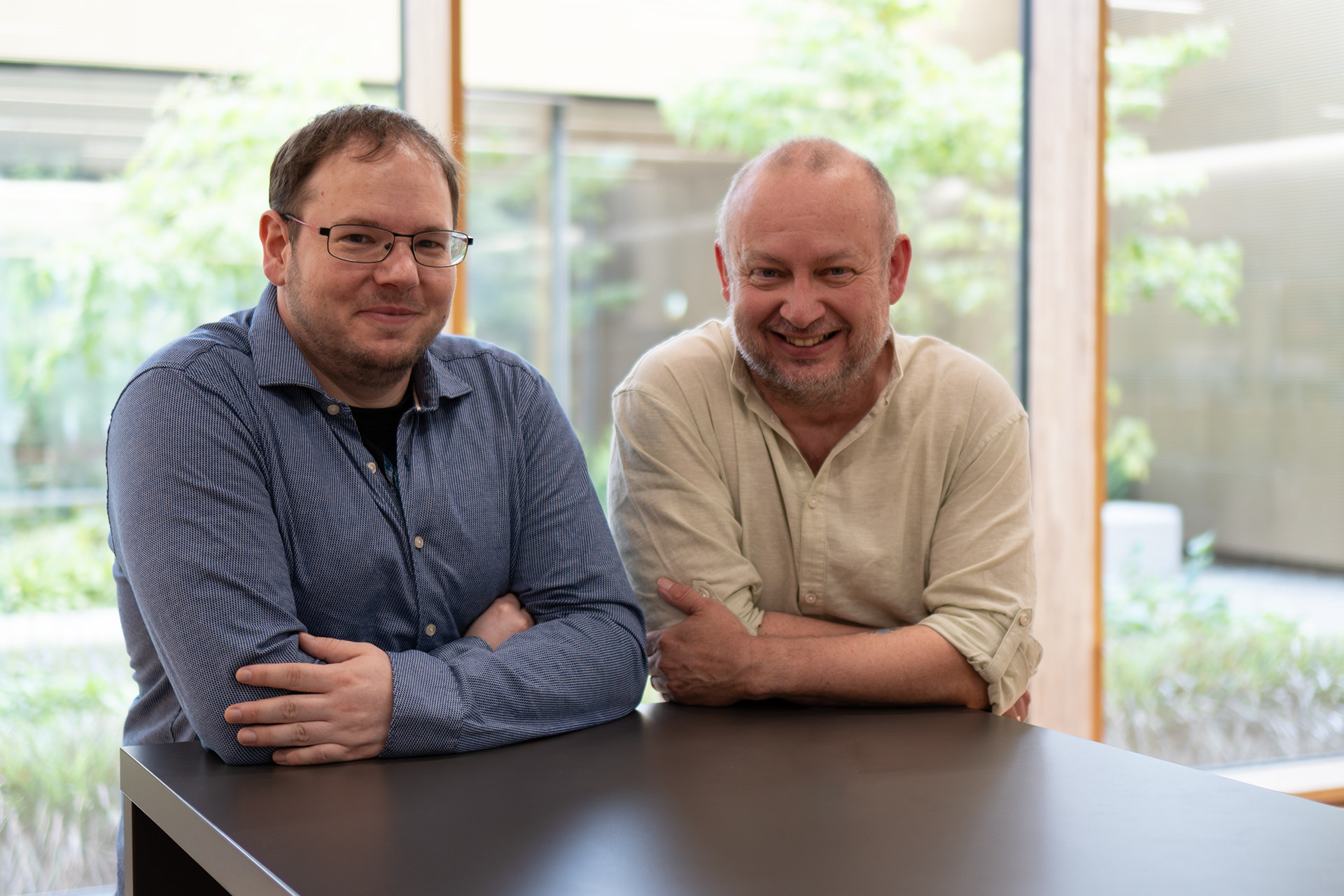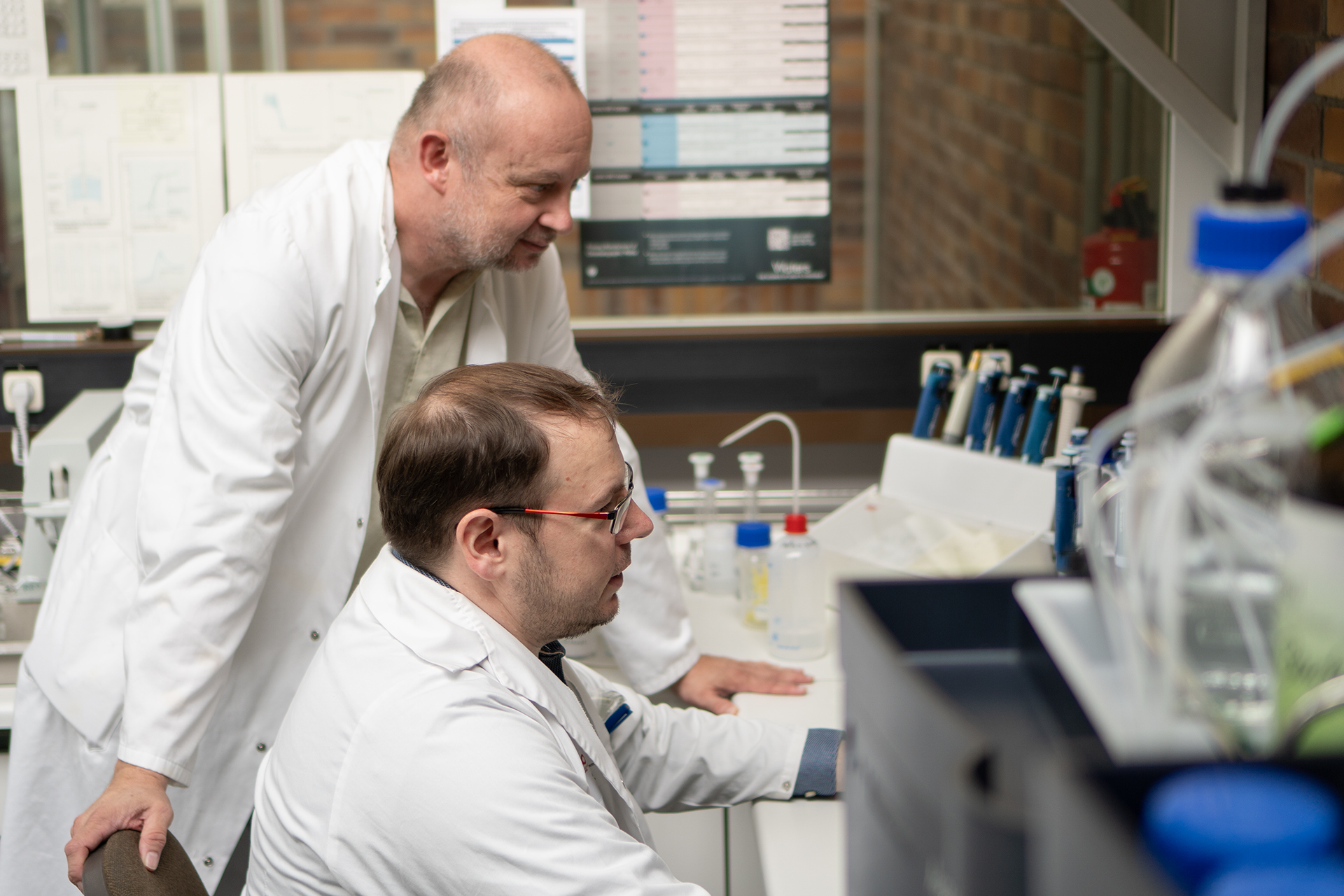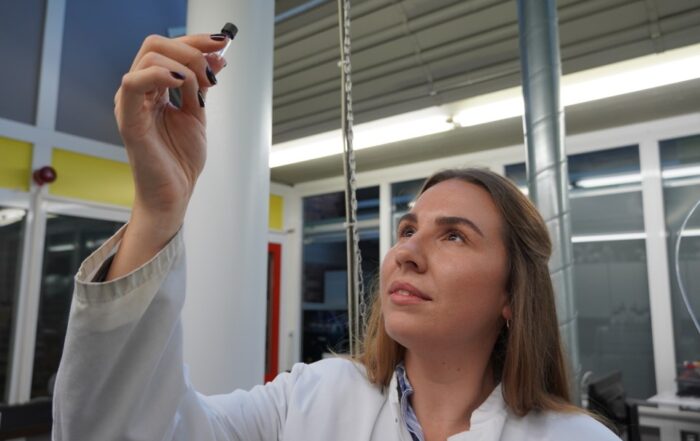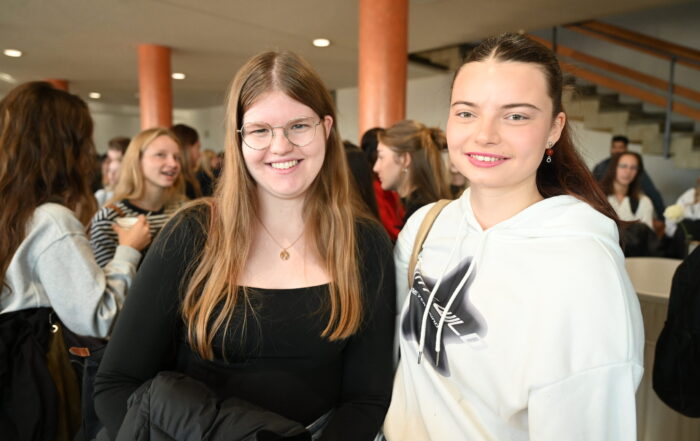16. July '24
Health or the environment: what will it be?
Once students at Coburg University of Applied Sciences have learned the basics of bioanalytics after three semesters, they can specialize.
They can also focus on bioinformatics, ecotoxicology or human biology in their Master’s degree.
This makes teaching more flexible and time-efficient.
Two newly appointed professors provide insights into the course and their work as professors.
Focus on bioanalytics The preparation, analysis and interpretation of biological data is the core of the Bioanalytics course at the Faculty of Natural Sciences and Health.
In the first three semesters of the Bachelor’s degree course, students attend the same lectures in order to create a common knowledge base.
After that, you decide which path you want to take before your practical semester: Human Biology or Environmental Data Science.
The former mainly trains students for laboratories and pharmacy, while the latter focuses primarily on “One Health”, for example veterinary medicine and environmental toxicology.
The Master’s program is similar.
Students can choose between bioinformatics, ecotoxicology or human biology. Focus on ecotoxicology Prof. Dr. Stephan Pflugmacher Lima is one of the newest appointees.
Since March 2024, he has been working at Coburg University of Applied Sciences as Professor of Chemistry with a focus on environmental chemistry and ecotoxicology.
He is concentrating on establishing the field of ecotoxicology within bioanalytics, which deals in particular with environmental problems and the resulting adverse health effects.
In his research, he develops solutions to these problems: One example of this is the “green liver” system he developed, which uses the detoxification potential of aquatic plants to purify water.
He finds ideal research conditions for this at the university: The interdisciplinary collaboration and close links with industry enable him to conduct his research in a practical and innovative way.
“The close integration of theory and practice as well as the excellent industrial networks are essential for my research,” explains Pflugmacher Lima. Environmental experts of the future He not only wants to impart knowledge to students, he assures them: “As a professor, I see myself not only in the role of a teacher, but also as a mentor and coach for our students so that they can successfully complete their studies.”
He also sees this close collaboration in interdisciplinary cooperation with other departments – such as bioinformatics: “I want to show that ecotoxicology is an interesting link between bioanalytics and bioinformatics and that our students have a unique course to choose from here to acquire expertise in an interdisciplinary environment. This will enable them to take up central positions in research, industry and political consulting later on.” Artificial intelligence and life sciences The ideal sparring partner for such a collaboration is the newly appointed Prof. Dr. Stefan Simm.
He joined Coburg University of Applied Sciences in September 2023 and brings with him a broad range of expertise in the field of bioinformatics.
As a research professor, he focuses on the application of bioinformatics and AI methods in the life sciences.
He is particularly interested in the development and application of explainable AI models for the analysis of large data sets.
These models help to identify biomarkers and evaluate their significance for various predictions. Such models could revolutionize everyday clinical practice: “In the case of cancer, for example, there are many different types that occur in different parts of the body. We can train AI to find these individual mutations and also identify new potential biomarkers.”
This can then be used to suggest more tailored therapies.
Simm knows that finding such information in the immense amounts of data is almost impossible with the naked eye.
However, such models can also enable more precise work in agriculture and produce more stress-resistant plants or increase yields. AI is key technology For Simm, the interfaces between computer science and biology are extremely diverse, including in terms of career choices: “Bioinformatics methods offer many opportunities for bioanalytics. Due to the interdisciplinary nature of the field, jobs ranging from consultant to IT positions to market data analysis are possible.”
Here too, the practice-oriented teaching and close links between the university and industry bring many advantages.
The direct use of AI based on real examples means that students need less training later on – knowledge about digital technology becomes second nature.
The two newly appointed professors have also taken this interdisciplinary collaboration to heart: Ecotoxicology and bioinformatics are also soon to be intertwined.
Pflugmacher Lima finds this inspiring: “The proximity to the students and the small groups enable optimal supervision and create a fruitful research environment. The working conditions for professors are ideal!”
Coburg University of Applied Sciences is in a special position precisely because of the existing networks, says the professor: “Industrial networks, which universities first have to build up, are naturally already in place here at the universities.”







